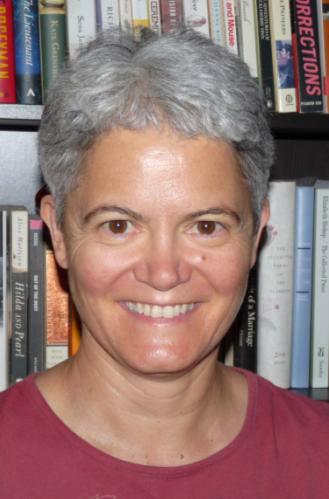Associate Professor Ellen Brinks has a B.A. in Philosophy and German from Agnes Scott College, and a Ph.D. in Comparative Literature from Princeton University. Professor Brinks teaches courses in British Romanticism, the Victorian period, literary theory, gothic literature and film, and colonial and postcolonial literatures.
Her research explores the cultural context of gender and sexuality and the tensions between individual and social expressions of identity. She has published numerous essays, including ones on women and 17th-century cartography, on the intersection of economics and sexuality in contemporary film, on the presence of the aesthetic in Winnicottian object relations theory, and on gothic representation and traumatic history.
Her first book, Gothic Masculinity, appeared in 2003. Her latest book, Anglophone Indian Women Writers, 1870–1920, was published in January 2013.
Faculty Profile: Ellen Brinks
~by Brianna Wilkins
What brought you to CSU?
It was one of the jobs that year in my area of specialization. The [English] department was looking for someone who specialized in British Romanticism, and that was the area that I did my doctorate in; that’s what initially brought me to the institution itself. When I came here for a campus interview, I was so impressed with the faculty and the very warm and welcoming atmosphere. I love hiking and outdoor activities, so that was a big draw as well.
Why are the humanities important?
I think they give us the opportunity to think and feel about the things we care about most, and by that I mean things like love and desire, community and social life, separation and loss and death. We have very few opportunities to be together in a communal environment to talk about those things, or even to have personal time to think deeply about them. Because they invite us to reflect on these basic aspects of our lives, the humanities seem to me to be central to personal, social and cultural development. And, to top it off, they confront us in complex and fascinating and challenging ways.
What moment in the classroom has stood out as one of the most memorable?
Well in general just moments where something unexpected or creative happens in the classroom. One example is from my British Romanticism class. We were talking about poetry that is sound based, versus poetry that is image based; we decided to work together [as a class] to make an image based poem. As a group we wrote an imagistic poem, and it was really an amazing product at the end, and none of us expected something so good and remarkable. It’s lost to posterity because nobody wrote it down [laughs].
What advice would you give a CSU English Student?
Read with your mind turned on.
What do you find inspiring?
Great ideas. Colleagues who are excellent teachers. Unselfish and kind people. A great art exhibit, or dance or music performance; anything beautiful inspires me.
What might your colleagues not know about you?
They may not know that during my 20s, for a number of years, I lived on a biodynamic agricultural commune in eastern Pennsylvania. We grew things organically, and I was in charge of a big herb garden for the community; there were over 100 of us working there.
Do you have a favorite word?
Ocean. I like the word because it sounds like the fall of a wave breaking and the silence afterwards, and the ‘O’ to me suggests that moment of awe when you look at its vastness.
